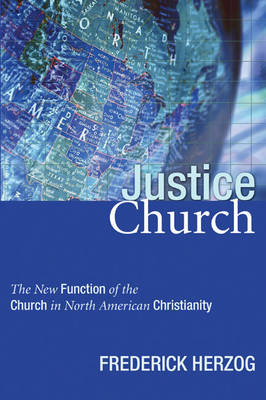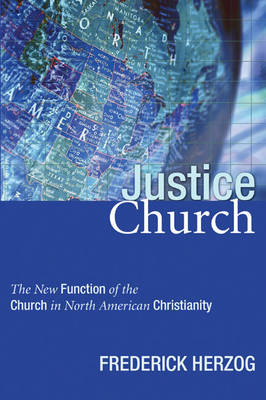
- Retrait gratuit dans votre magasin Club
- 7.000.000 titres dans notre catalogue
- Payer en toute sécurité
- Toujours un magasin près de chez vous
- Retrait gratuit dans votre magasin Club
- 7.000.0000 titres dans notre catalogue
- Payer en toute sécurité
- Toujours un magasin près de chez vous
Description
Frederick Herzog's focus on the praxis context of the church is right on target. He makes a much needed contribution to the critical development of liberation theologies in the North American situation."" --Letty M. Russell Yale University Divinity School I am particularly grateful for the clear articulation in the book of a number of concerns emerging in Third World theology, such as the recognition of poverty as a political and not a natural phenomenon, the shift from elite-universals to peoples' universals, the emphasis on Christopraxis as the key to orthodoxy, the interpretation of theology as praxis seeking understanding, and the emphasis on the sacraments of Baptism and the Lord's Supper as affirming that the bifurcation of history into a bodily history and spiritual history has been overcome. I hope that the book will be widely read in all continents and stimulate dialogue for promoting praxis-rooted theology."" --J. Russell Chandran, United Theological College, Bangalore, India Herzog refuses to do an easy or obvious theology, but insists on raising difficult questions which require theology to be done with some anguish. He has seen more clearly than most that we are in a crisis of categories, which must be reshaped in shattering ways, not only to do a new theology, but to re-understand the nature of theology. Members of the United Church of Christ, his own church body, will especially benefit from Herzog's proposals as this militantly 'liberal' church is urged in critical and self-critical directions."" --Walter Brueggemann, Professor Emeritus, Columbia Theological Seminary No one has been more passionately involved than Frederick Herzog in responding to the challenges to mainstream North American Christianity from Latin American and black liberation theologians. Addressing liberal Protestant theology and denominational structures in 'Justice Church, ' Herzog unfolds a new theological method and a new understanding of the church. This is an important book for all who believe that Christian faith involves response to injustice."" --Lee Cormie, University of St. Michael's College, University of Toronto Frederick Herzog was Professor at the Duke University Divinity School. He served on numerous commissions of the World Council of Churches and the United Church of Christ. In the spring of 1970 he wrote the first North American article on liberation theology, and in 1972 his 'Liberation Theology' was published, a study of the Fourth Gospel described by Robert McAfee Brown as a pioneer North American work."" In 'Justice Church' Herzog continues his pioneering work with a North American methodology of liberation theology.
Spécifications
Parties prenantes
- Auteur(s) :
- Editeur:
Contenu
- Nombre de pages :
- 174
- Langue:
- Anglais
Caractéristiques
- EAN:
- 9781597523677
- Date de parution :
- 13-09-05
- Format:
- Livre broché
- Format numérique:
- Trade paperback (VS)
- Dimensions :
- 153 mm x 216 mm
- Poids :
- 217 g

Les avis
Nous publions uniquement les avis qui respectent les conditions requises. Consultez nos conditions pour les avis.






